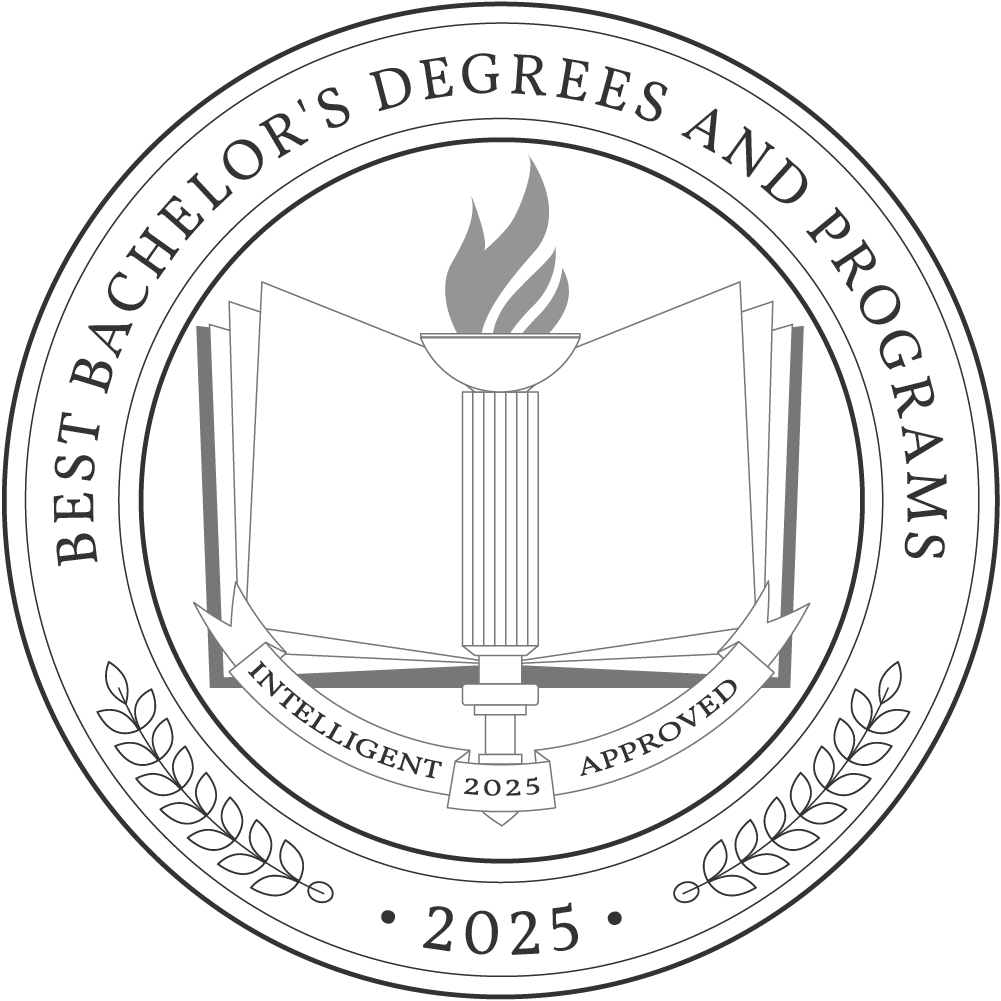Why This Matters
-
THOSE WITH A BACHELOR’S EARN MUCH MORE THAN THOSE WITHOUT
Full-time employees with a bachelor’s degree earn a median weekly salary of $1,334, compared to $809 for those with a high school degree.
-
REDUCE YOUR UNEMPLOYMENT RISK
The unemployment rate for workers with a bachelor’s degree is 3.5%, while the unemployment rate for workers with just a high school diploma is 6.2%.
-
SEVERAL FAST-GROWING OCCUPATIONS REQUIRE A BACHELOR’S DEGREE
A bachelor’s degree opens the door to some of the fastest-growing occupations in the U.S., including data scientist and information security analyst.
Our Research
This list features some of the best bachelor’s degree programs at top colleges across the country. Each school featured is a nonprofit, accredited institution — either public or private — with a high standard of academic quality for post-secondary institutions.
We evaluated each school’s program on tuition costs, admission, retention and graduation rates, faculty, and reputation as well as the student resources provided for on-campus students. Then we calculated the Intelligent Score on a scale of 0 to 100. Read more about our ranking methodology.
Next, we compared this comprehensive list of bachelor’s degree programs to a list of aggregated college rankings from reputable publications like the U.S. News & World Report among others to simplify a student’s college search. We pored through these rankings so students don’t have to.
The Top 50 Bachelor’s Degrees and Programs

Discover More Options
What You Should Know About This Degree
A bachelor’s degree is a post-secondary degree that typically takes four years to complete. There are several different types of bachelor’s degrees. Some are more broad, such as a Bachelor of Arts or Bachelor of Science, while others are more focused on a specific area of study, like a Bachelor of Nursing or Bachelor of Music.
The type of bachelor’s program you pursue will depend on your area of interest and career goals. If you are unsure of the exact subject in which you want to earn your degree, many colleges will let you enroll and take general education classes that can eventually be applied to your selected degree program.
While a bachelor’s degree is the minimum level of education needed for many different careers, it is important to note that not all career paths require individuals to have a bachelor’s degree. Depending on what your professional goals are, you may be able to enter the field with an associate degree, which takes two years to complete, or by enrolling in a certificate or diploma program. Conversely, there are other careers that require additional education after a bachelor’s degree, such as a master’s or even a doctorate degree.
What’s Next?
Here are some questions to ask when researching bachelor’s degree programs:
- What are the admissions requirements? Most bachelor’s degree programs have simple admissions requirements, including an application, essay, letters of recommendation, high school transcripts, and SAT or ACT scores, although an increasing number of schools are making standardized test scores optional. However, it is important to carefully review all admission requirements and deadlines, as missing or late pieces of an application can affect your decision.
- What do you like about the school besides its bachelor’s programs? For many students, especially those attending college in person, choosing the institution where you will earn your bachelor’s degree is about more than just academics. It’s also important to consider the size and location of the university, what types of extracurricular activities and opportunities it offers, and whether you will live on campus or commute.
Most of your research about different bachelor’s programs will be conducted online, but if you have questions about a certain program, you should contact the school directly to speak to an admissions representative or program director.
Financing your graduate education is another important consideration. Be sure to submit financial aid applications on time, and research other sources of funding including scholarships, assistantships, and tuition benefits from your employer.
